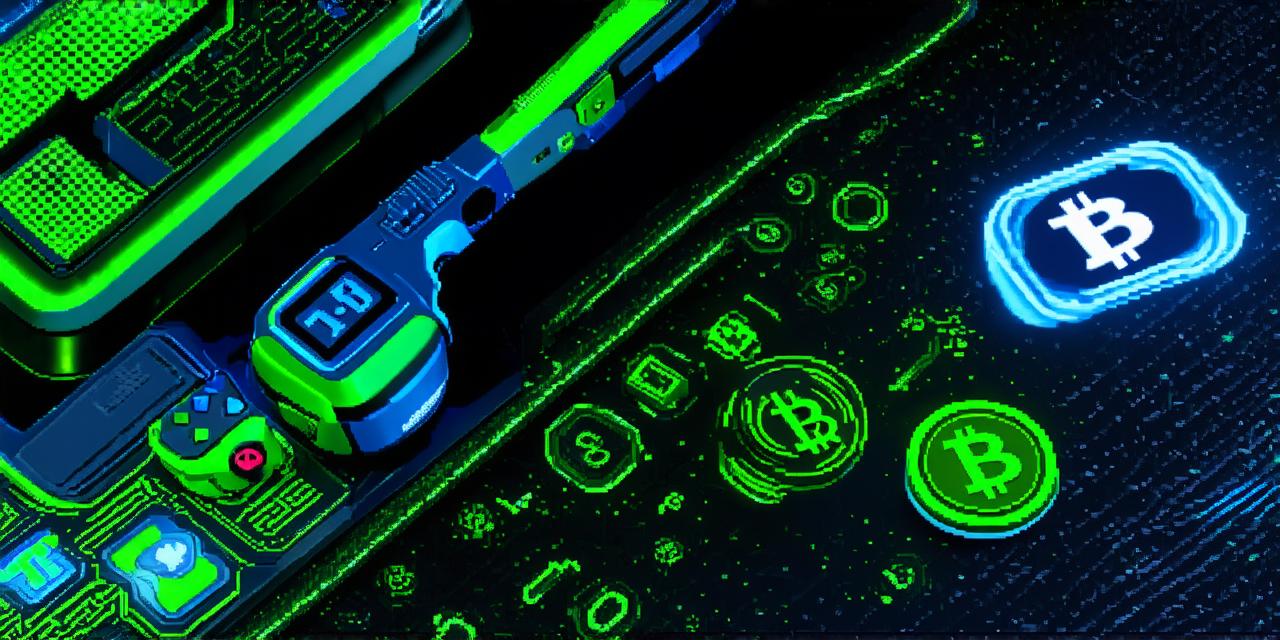As the gaming industry continues to grow and evolve, it’s essential for developers to stay ahead of the curve. One way to do that is by utilizing non-fungible tokens (NFTs) in your game marketing strategy. In this article, we will explore how NFTs can be used to boost your business and engage your audience.
What are NFTs?
Non-Fungible Tokens (NFTs) are unique digital assets that represent ownership of a piece of content such as artwork, music, or video game items. They are stored on blockchain technology, making them secure, transparent, and tamper-proof. NFTs have gained popularity in recent years due to their potential for creating new revenue streams and providing players with exclusive and valuable content.
How can games be marketed as NFTs?
There are several ways that games can be marketed using NFTs. One way is by selling unique in-game items as NFTs, such as rare weapons, characters, or collectibles. This allows players to own and trade these items on the open market, creating a new revenue stream for the game developer.
Another way that games can use NFTs is by offering exclusive access to content or events through the sale of NFTs. For example, a game developer could sell NFT tickets to a live event or exclusive in-game content, giving players access to limited edition items or experiences.
Case study: CryptoKitties
CryptoKitties is a popular blockchain-based game that allows players to breed and collect unique digital cats as NFTs. The game has been incredibly successful, with over 14 million users and millions of dollars in revenue generated through the sale of NFT cats.
One of the reasons for CryptoKitties’ success is its innovative use of NFTs. By creating a unique and valuable asset that could be bought, sold, and traded on the open market, the game was able to tap into a new revenue stream and create a sense of scarcity and exclusivity around its content.
Benefits of using NFTs in game marketing
Using NFTs in game marketing has several benefits. Firstly, it allows developers to create new revenue streams by selling unique in-game items or exclusive access to content as NFTs. This can help to offset the costs of developing and maintaining the game, allowing developers to be more profitable in the long run.
Secondly, using NFTs can help to engage players and create a sense of ownership and investment in the game. By offering unique and valuable assets that can be bought, sold, and traded on the open market, developers can create a new level of excitement and engagement around their game.
Thirdly, using NFTs can help to reduce the risk of piracy and cheating in games. Since NFTs are stored on blockchain technology, they are secure and tamper-proof, making it much harder for players to cheat or hack the system.
FAQs
Q: What is an NFT?
An NFT is a unique digital asset that represents ownership of a piece of content such as artwork, music, or video game items. NFTs are stored on blockchain technology, making them secure, transparent, and tamper-proof.
Q: How can games be marketed using NFTs?
Games can be marketed using NFTs by selling unique in-game items as NFTs or offering exclusive access to content or events through the sale of NFTs.

Q: What are the benefits of using NFTs in game marketing?
Using NFTs in game marketing has several benefits, including creating new revenue streams, engaging players and creating a sense of ownership and investment in the game, and reducing the risk of piracy and cheating in games.
